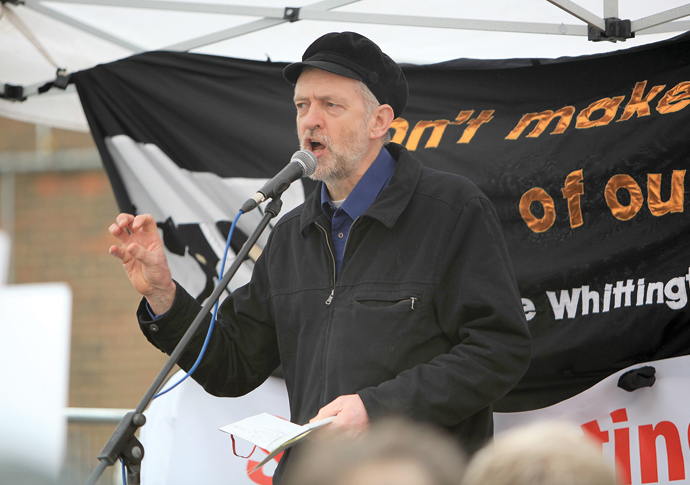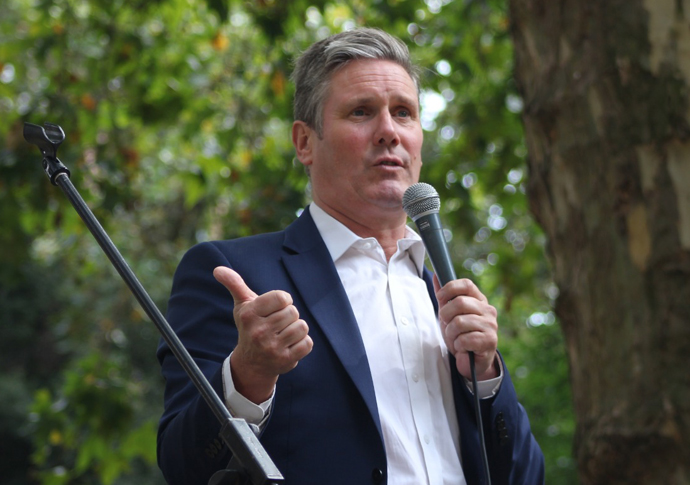Corbyn: ‘Starmer abandoned values and pledges’
MP launches stinging attack on Labour leader but vows to carry on with lifetime’s campaigning
Friday, 7th April 2023 — By Izzy Rowley

Jeremy Corbyn: ‘The decision to block my candidacy is an insult to the millions of people who voted for our party in 2017 and 2019’
MP Jeremy Corbyn has said the leadership of the Labour party is “debasing democracy” after members in Islington North were barred from picking him as their parliamentary candidate at the next general election.
And in a critique of Sir Keir Starmer’s regime, he has questioned why the policy pledges appear to have fallen by the wayside.
In his first full opinion article since a vote by the party National Executive Committee last week, Mr Corbyn tells residents in his constituency again that he has no intention of withdrawing from his lifetime of campaigning.
Writing in this week’s Tribune, he said: “The decision to block my candidacy is an insult to the millions of people who voted for our party in 2017 and 2019, and to all those who voted for his leadership on the basis that he would “defend [the] radical values” we put forward.”
He added: “Keir Starmer has abandoned his pledges to defend trade unions, bring key industries into public ownership, reverse NHS privatisation, raise corporation tax, protect free movement and abolish tuition fees.
“Solidarity is now saved for CEOs, not striking workers. Trust is placed in corporate interests, not party members. Human rights issues are cherry picked at the expense of a consistently ethical foreign policy.
“And empathy for desperate refugees is eschewed to appease the right-wing press.”
It is probably the strongest Mr Corbyn has ever been in his criticism of his successor at the head of the party.

Sir Keir Starmer
Mr Starmer had told interviewers on Sunday that he had been “ruthless” in stopping Mr Corbyn and then told LBC Radio on Monday that they had never been friends – even though there are recordings of him saying the opposite in the past.
The current Labour leader has also said he never committed to nationalisation policies – the ownership of water has been a major issue in Islington – even though past comments suggest he would support more public ownership of public utilities.
Mr Starmer had been a key shadow cabinet player under Mr Corbyn’s own leadership of the party, acting as the Brexit spokesperson at a time when the issue of the EU was dividing the country and drowning out discussion on any other issue.
But, now in charge, he removed the whip from Mr Corbyn after comments made in the wake of the Equality and Human Rights Commission’s findings into anti-Semitism in the Labour party and how complaints were handled – a report that concluded the party had broken the law in terms of the Equality Act.
Mr Corbyn endorsed the report’s recommendations but was punished by Mr Starmer for a comment in which he said “the scale of the problem was also dramatically overstated for political reasons by our opponents both inside and outside the party, as well as by much of the media”.
Mr Starmer himself brought the motion to the NEC last week and has said the only person to blame for the bar on Mr Corbyn from standing again for the party he has represented in parliament for more than 40 years was Mr Corbyn himself.
The speculation has only intensified now that Mr Corbyn might stand as an independent candidate.
Party officers in the Islington North constituency have already argued that it should be the members here who decide whether Mr Corbyn should be the Labour candidate again.
Meanwhile, the Islington Friends of Jeremy Corbyn (IFJC) have launched a petition campaigning for the constituency Labour Party to have the final say.
In a statement given to the Tribune, IFJC said: “The petition gives people the opportunity to show support for the democratic right of local members to decide who the Labour candidate should be. We hope that this petition will raise awareness of this assault on democracy.”
In his article, Mr Corbyn said: “This week it was Islington North Labour party under attack. Who’s next? And, ultimately, if the Labour leadership is happy to denigrate its own party’s internal democracy, how will it treat democracy more broadly if it is given the chance to govern? One thing’s for sure: the Labour leadership will not be able to defend democracy in society if it cannot even respect it in its own movement.”
